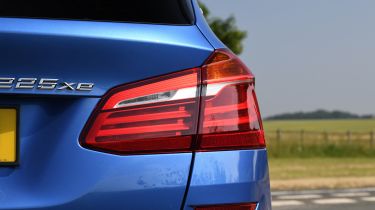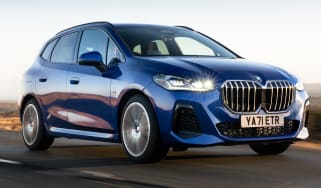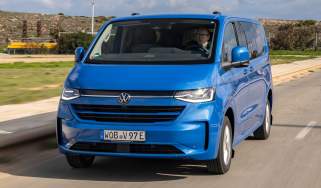BMW 2 Series Active Tourer MPV - MPG, running costs & CO2 (2014-2021)
Most of the BMW 2 Series Active Tourer engines are pretty economical to run
The BMW 2 Series Active Tourer’s engines also appear in the BMW 1 Series hatchback. You can choose between punchy 1.5 and 2.0-litre diesels and a three-cylinder turbocharged petrol also used in the MINI hatchback – and all these impress with their economy. The 2 Series comes very close to the 1 Series’ economy figures, which is impressive given it's increased size and weight. Insurance groups broadly match those of its Mercedes B-Class rival, as does BMW’s warranty – though it lags behind some manufacturers in its generosity.
BMW 2 Series Active Tourer MPG & CO2
The most economical choice of engine is the 216d diesel, capable of returning up to 60.1mpg on the cheapest trim level. If you choose the smaller alloy wheels, this version emits from 124g/km of CO2. The more powerful 2.0-litre 218d can match the 216d, while the 220d can manage up to 56.5mpg.
That means company-car users face Benefit-in-Kind (BiK) tax ratings that are about average due to the 4% surcharge on diesel, but the 216d is two bands lower than the 218d or 220d.
The most cost-effective petrol model to run is the 218i - the least powerful petrol option. It uses a three-cylinder turbocharged petrol that also powers the MINI hatchback and is capable of up to 46.3mpg, whether you go for the standard manual gearbox or the seven-speed dual-clutch automatic option. A more powerful 220i model is also available with the automatic gearbox, returning up to 45mpg and a similar BiK rating to the manual 218i.
More reviews
In-depth reviews
The absolute economy champion of the range is the 225xe plug-in hybrid model. This uses electric motors and batteries connected to the 1.5-litre turbo petrol engine and is said to return up to 176.6mpg, which may be achievable if you charge the battery frequently. CO2 emissions of 37-39g/km mean that it is London Congestion Charge exempt and sits in a low BiK benefit banding.
Before you buy, check the car's exact CO2 emissions rating, because the size of the alloy wheels on some cars change the CO2 figure, as can the addition of BMW’s xDrive four-wheel-drive system.
All BMW 2 Series cost the standard rate of VED (road tax), except for the 225xe plug-in hybrid model, which qualifies for the discounted rate. Spend over £40,000 and you'll also need to budget for the surcharge in years two to six.
Insurance
Since they have the same engine range, the BMW 2 Series Active Tourer and its lengthened BMW 2 Series Gran Tourer sister fall into the same insurance groups – between groups 11 and 23. The Mercedes B-Class has similar insurance ratings when engines are compared size-for-size. We always recommend, though, that you contact your insurance provider before making a purchase decision.
Warranty
BMW provides a three-year/unlimited-mileage warranty on all its cars. That’s the same as what you get on a Mercedes B-Class MPV, but lags behind some rivals. The rather less expensive Kia Carens, for example, came with a seven-year/100,000-mile warranty when you could buy it new.
Servicing
Service intervals depend on the engine you choose, as the diesels usually require a check before the petrol ones do. BMW offers inclusive service plans, which cost from around £400 for a basic package. A more comprehensive plan will set you back more than £1,000, but may still be cost-effective for high-mileage motorists.
Which Is Best?
Cheapest
- Name220i MHT Sport 5dr DCT
- Gearbox typeAuto
- RRP£34,665
Most Economical
- Name225e xDrive Sport 5dr DCT
- Gearbox typeAuto
- RRP£40,070
Fastest
- Name230e xDrive Luxury 5dr DCT
- Gearbox typeAuto
- RRP£44,825















